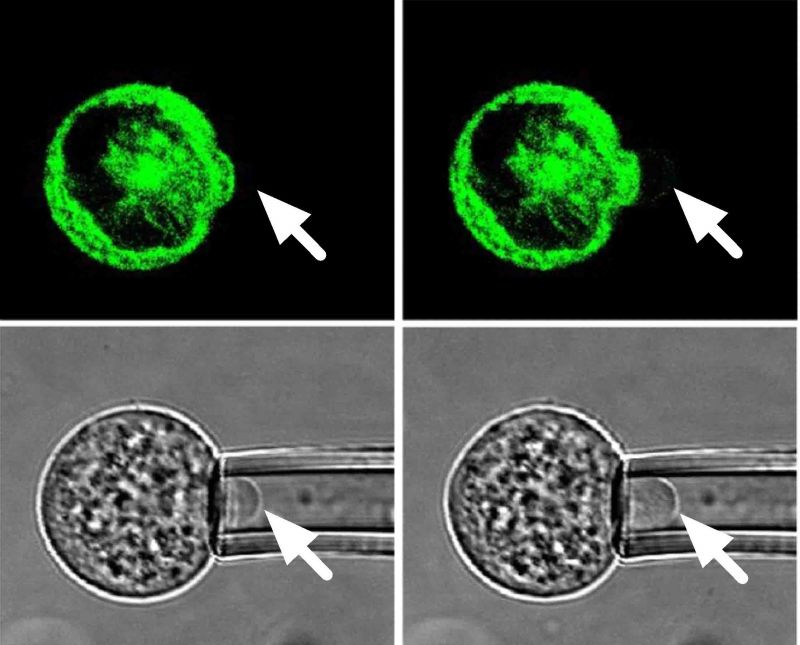Prof David Lee
BSc (Hons), MA, PhD
Research Funding
On this page:
- Current Funded Research Projects
- Previous Funded Research Projects
- Previous PhD Studentship Projects
- Other Research Projects
Current Funded Research Projects
Engineering Circadian Biology into Human Induced Pluripotent Stem Cell Organ-on-a-Chip modelsFunding source: BBSRC Biotechnology and Biological Sciences Research CouncilStart: 01-02-2022 / End: 31-08-2024 Amount: £201,874 |
British Heart Foundation – 4 year Doctoral Training ProgrammeFunding source: British Heart FoundationStart: 01-09-2017 / End: 31-08-2024 Amount: £2,300,000 Led by Professors Amrita Ahluwalia and Tim Warner and involving 23 named researchers, the BHF DTP Programme provides cohort training leading to a PhD in cardiovascular research. |
Previous Funded Research Projects
Super-Resolution Microscopy of live cells in 3DFunding source: BBSRCStart: 01-12-2020 / End: 31-03-2022 This project funds the acquisition of a novel super resolution microscope, OMX-FLEX, which will be used to develop a range of new techniques enabled by fast 3D Super-Resolution imaging of live-cells. |
Incorporating the circadian clock into Organ-on-a-chip (OOAC) devicesFunding source: MRC/HEIFStart: 01-04-2020 / End: 31-01-2022 Studies to support the development of more physiologically relevant in vitro model systems which incorporate the circadian clock |
University Enterprise ZoneFunding source: RE Research England (RE)Start: 01-08-2019 / End: 30-06-2021 Development of space and infrastructure to expand activities for the incubation of life sciences spin-out and start-up companies. |
Does the biological clock within cartilage align to diurnal patterns in activity?Funding source: EPSRC Engineering and Physical Sciences Research CouncilStart: 01-10-2019 / End: 31-03-2020 |
Mechno-regulation of genome function to direct stem cell rateFunding source: B.B.S.R.C.Start: 01-01-2017 / End: 31-12-2019 Mechno-regulation of genome function to direct stem cell rate |
Hydrothermal Biomass Upgrade into Carbon Materials and Leuvinic Acid for Sustainable Catalysis - HydroCat Marie Curie (CIG)Funding source: Commission of the European CommunityStart: 01-03-2014 / End: 31-08-2018 |
SuprHApolymers - Engineering macromolecular self-assembly of hyaluronan (HA)-based glycopolymers with peptidesFunding source: Marie Curie Career Integration Grant (FP7)/European UnionStart: 01-03-2014 / End: 28-02-2018 “SuprHApolymers” project aims to design and synthesize glycopolymers mimicking the composition and structure of hyaluronan (HA), a linear polysaccharide composed of repeating disaccharide units of N-acetyl-glucosamine and glucuronic acid but with many important biological functions. These HA synthetic analogues will be explored for applications in synthetic biology and biomedicine. |
Effect of cell age on cell migration and cytoskeletal reorganization’Funding source: Dunhill Medical TrustStart: 01-04-2016 / End: 30-09-2017 Effect of cell age on cell migration and cytoskeletal reorganization |
CSKFingerprintsFunding source: Commission of the European CommunityStart: 01-05-2014 / End: 30-04-2017 Use cytoskeletal morphometrics to characterize cell function, behaviour and pathologies |
Novel dynamic self-assembling system - BIOMORPHFunding source: Commission of the European CommunityStart: 01-04-2014 / End: 31-03-2017 The project aims to invetigate the molecular mechanisms between peptides and proteins t create dynamic materials |
Optimal Cartilage RegenerationFunding source: Dunhill Medical TrustStart: 01-11-2014 / End: 31-12-2016 |
Augmenting sirtuin activity to drive cartilage regeneration and treat osteoarthritis.Funding source: Dunhill Medical TrustStart: 01-11-2014 / End: 31-12-2016 Osteoarthritis (OA) is a highly prevalent disease involving degeneration of articular cartilage and chronic inflammation of the joints, with Worldwide estimates that 9.6% of men and 18.0% of women aged >60 years have symptomatic OA. Prevalence increases with age, such that OA is expected to be the fourth leading cause of disability by the year 2020 (WHO report, 2003). Thus factors that slow the onset or progression of this disease will significantly benefit the well-being of older people. |
Multiscale Mechanobiology for Tissue EngineeringFunding source: EPSRCStart: 01-09-2007 / End: 31-08-2012 Platform Grant Strategic Research Areas i). Mechanics and mechano-signalling at the sub-cellular, cellular and tissue levels. The response of living cells and tissues to mechanical forces is critical to tissue health and homeostasis. Consequently this field of mechanobiology has enormous potential to be exploited in the development of Tissue Engineering ... |
Does Warburg energy metabolism contribute to the phenotypic stability of monolayer expanded chondrocytes?Funding source: MRCStart: 01-08-2010 / End: 30-10-2010 Elucidating the contribution of bioenergetic phenotype to the preservation of the differentiated chondrocyte phenotype in vitro. |
The modulation of metabolic phenotype in chondrocytes during monolayer expansion in relation to synthetic phenotypic stability, oxidative stress and proliferative senescence.Funding source: Wellcome TrustStart: 01-02-2007 / End: 31-08-2010 Elucidating the role of the chondrocyte bioenergetic phenotype in the preservation of a differentiated synthetic phenotype and senescence in vitro. |
Mechanoregulation of nuclear architecture and genome function: A novel mechanism in stem cell fate (Human Frontier Science Program funded)Funding source: Human Frontier Science ProgramStart: 01-06-2009 / End: 31-05-2010 Gene expression can be regulated through alterations in nuclear architecture, providing control of genome function. Mechanical loading induces both nuclear deformation and alteration in gene expression in a variety of cell types. One putative transduction mechanism for this phenomenon involves alterations to nuclear architecture, resulting from the mechanical perturbation to … |
Previous PhD Studentship Projects
FlowMat Marie Curie (CIG)Funding source: Commission of the European CommunityStart: 01-08-2013 / End: 01-08-2017 |
The role of membrane-actin adhesion in regulating stem cell viscoelastic properties and blebability during differentiationFunding source: EPSRCStart: 09-01-2012 / End: 10-01-2015 This PhD examines how chondrogenic differentiation of human mesenchymal stem cells (hMSCs) regulates the interaction between the cell membrane and the actin cortex, thereby controlling cell biomechanics. The thesis also investigates the viscoelastic properties of primary articular chondrocytes and the effect of de-differentiation. Micropipette aspiration was used to measure the … |
Other Research Projects
Mechano-regulation of genome function to direct stem cell fateThis project addresses the concept that the nucleus acts as a sensor for mechanical stimuli. By characterising biophysical and epigenetic changes as stem cells differentiate, we will identify pathways responsible for the alteration of cellular mechanosensitivity. These can then be targeted to repair defective mechanosensitivity in diseased or aged cells. |
Cell and Tissue EngineeringArticular cartilage, mechanotransduction, cytoskeletal dynamics, calcium signalling, chondrocytes in agarose gel, confocal microscopy. |


.jpg)
.jpg)

